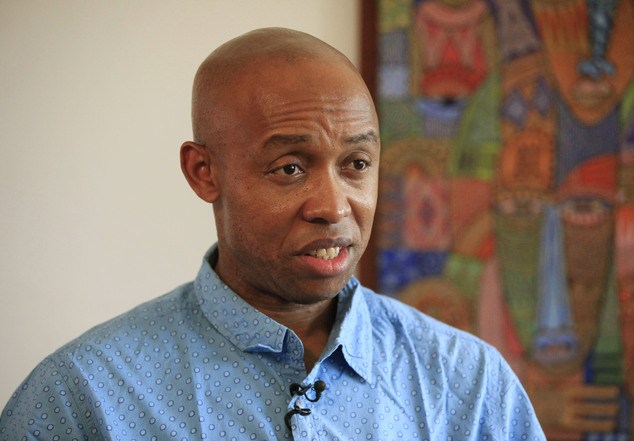Torture in Nigeria is a resilient atrocity, with deep origins in the institutional foundations of the police, army and security institutions in the country from the middle of the 19th century when blacks were not considered human beings.
By Chidi Anselm Odinkalu
When I first met Elechi Larry Igwe early in 1991, he was safely ensconced in the bowels of a mortuary in Lagos. Elechi, a resident of the United States of America, had flown into the Murtala Mohammed International Airport for the Christmas and New Year holidays in 1990 into 1991 on his way to his village in Abiriba, now in Abia State in south-east Nigeria. He never made it home nor did he return to the USA. His journey ended in the Surulere Police Station. On his way from the airport to his hotel layover, some police men waylaid Elechi, abducted him to the police station and, having tortured him to their hearts’ content, mercifully put a bullet to his mouth shattering his mandibles, his facial structure and the lives that depended on him.
Elechi was one of a multitude of victims whose ordeals at the hands of the Nigeria Police Force and the security services defined my early life as a legal professional in Nigeria. All of them were either survivors of torture or relatives of victims of torture and extra-judicial killings.
The advocacy group, Access to Justice, describes the practice of torture in Nigeria’s security services as “institutional and routine”, while Amnesty International complains that “police and military personnel routinely use torture and other ill-treatment to extract information and ‘confessions’, and to punish and exhaust detainees.”
The methods and means of torture in the practice of policing Nigeria, for instance, are infinite. In many cases, security and law enforcement agents built their careers on torture and third degree policing. Indeed, the prevalence of torture, inhumane treatment, and even extrajudicial killings by law enforcement officers is rampant and very well documented, to the point of being the cause of a national uprising in October 2020 under the nomenclature of #EndSARS.
A report jointly issued in 2010, the Open Society Justice Initiative and Network on Police Reform in Nigeria (NOPRIN) alleged that “torture facilities and personnel, including dedicated torture chambers, instruments, and an officer known as ‘O/C (officer in charge of) Torture’ exist in every major police station. In most cases, the O/C Torture has a workshop or torture chamber entirely of his own, and a seemingly limitless number of options for dispensing suffering and eliciting the confessions that are the principal means of police investigation in Nigeria. Some of them achieve near-legendary status.”
One of such officers whose legend was built on his skill in the dreadful art of torture was Sunday Maicibi, who headed the anti-robbery section in the State Criminal Investigation Department, SCID, in Enugu, in south-east Nigeria at the beginning of the millennium. The torture chamber that he ran was known as “the theatre”. It was infamous for its dexterity in dismantling even the most hardened of suspects and detainees. One of the assets under his command was “a police officer called “Okpontu”—meaning “the Nailer” in Igbo language—after he reportedly drove a nail through the palm of a detainee in 2006.”
Torture in Nigeria is a resilient atrocity, with deep origins in the institutional foundations of the police, army and security institutions in the country from the middle of the 19th century when blacks were not considered human beings. By the time the country became independent in 1960, these attitudes and practices had crystallized into institutional doctrine after a century of white supremacism, under which those institutions were established.
Torture is the crime that prospers despite being prohibited the world over. The constitutional prohibition of torture is as old as post-colonial Nigeria. It was contained in section 18 of the 1960 Constitution and section 31 of the 1979 constitution as well as in section 34 of the 1999 Constitution. Quite apart from these, Article 5 of the African Charter on Human and Peoples’ Rights which is law in Nigeria also prohibits torture.
There were two problems, however, with this prohibition. First, none of these constitutions ever defined torture. Second, torture was not a crime in Nigeria until 2017.
While it was not a crime to torture human beings in Nigeria until 2017, it was criminal in many parts of the country to torture animals. For instance, s. 394(1)(a) of the Criminal Law of Lagos State, 2011, makes it a crime for any person to “cruelly beat, kick, ill-treat, over-ride, over-drive, over-load, torture, infuriate, or terrify any animal, or cause or procure, or, being the owner, permit any animal to be so used.” Impressively, the same law did not criminalize torture of humans.
The Anti-Torture Act (ATA) of 2017 set out to rectify these anomalies in Nigeria through six steps. First, for the first time in Nigerian law, the Act defines torture which can be physical or psychological. The former includes “such cruel, inhuman or degrading treatment which causes pain, exhaustion, disability or dysfunction of one or more parts of the body”, while the latter covers “such cruel, inhuman or degrading treatment calculated to affect or confuse the mind or undermine a person’s dignity and morale.”
Second, the Act prescribes a state-actor requirement as inherent in the definition of torture. Thus, section 2(1) prescribes that for an act to constitute torture, it must be done “by or at the instigation of or with the consent or acquiescence of a public official or other person acting in an official capacity provided that it does not include pain or suffering in compliance with lawful sanctions.” This requirement of state actor extends to abuses by militias or civilian task-forces maintained by governments and politicians.
Third, there are no defences or exceptions to torture under the Act. For the avoidance of doubt, the ATA provides that “[n]o exceptional circumstances whatsoever, whether a state of war or a threat of war. Internal political instability or any other public emergency, may be invoked as a justification for torture.” It is no defence that we are fighting an insurgency or liquidating some people whom we do not like.
Fourth, the Act makes torture a crime punishable on conviction with a minimum of 25 years in jail under section 9(1) of the Act. Section 9(2) provides that “[t]orture resulting in the loss of life of a person is considered as murder and shall be tried and punished under the relevant laws.”
Fifth, with reference to possibilities for redress, the National Human Rights Commission and NGOs may help victims file complaints concerning violations of the ATA and the Attorney-General may make rules and regulations for the implementation of the Act respectively under sections 6 and 12.
Sixth, the ATA is a federal piece of legislation enacted by the National Assembly in exercise of its powers to implement the Fundamental Rights under the Constitution. Being an exercise of powers exclusive to the National Assembly, the Act is applicable to all states of Nigeria and does not require any further act or acts by the states to make it applicable in their respective jurisdictions for purposes of enforcement.
Citing the ATA, Attorney-General of the Federation, Abubakar Malami, a Senior Advocate of Nigeria (SAN), claimed before a meeting in Abuja on 21 June, 2022, that Nigeria does not condone torture. However, five years after the passage of the ATA, the same Attorney-General cannot point to a single case prosecuted by him under the Act. Indeed, the National Committee against Torture established since 2009 continues to function as an appendage under his office, lacking independence or authority to fight the scourge.
When it met with the United Nations in Geneva in November 2021, the National Committee toed the same line as the Attorney-General but got smacked down by the United Nations officials who told them pointedly that while “it was good to pass laws, but it was better to act on them. The legal framework of Nigeria was not called into question; rather, the questions raised had been more about the implementation of those laws.”
Contrary to the protestations of the Attorney-General of the Federation, therefore, and to the express provisions of the Nigerian constitution, it seems clear that Nigeria does condone torture.
On Sunday, 26 June 2022, the world marked the International day in Support of victims of Torture. The International Day was instituted by United Nations General Assembly Resolution 52/149 of 12 December, 1997, “with a view to the total eradication of torture and the effective functioning of the Convention against Torture and Other Cruel, Inhuman or Degrading Treatment or Punishment, which entered into force on 26 June 1987.”
If Attorney-General Malami wants to be taken seriously in his protestations about torture in Nigeria, he can choose this day to announce how he will make the ATA work. That will be an auspicious start.
- A lawyer and a teacher, Odinkalu can be reached at chidi.odinkalu@tufts.edu













